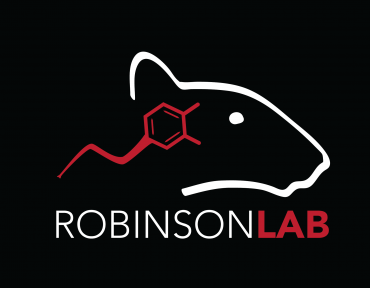A paper coauthored by several members of the Robinson Lab is published in the Oct. 3 issue of Behavioural Brain Research, Volume 371. The coauthors include Mike Robinson, assistant professor of psychology; graduate student Charlotte Freeland, Callie Clibanoff '19, Anna Knes '19, John Cote '19, and Trinity Russell '17. The flashing lights and celebratory sounds that dominate slot-machine gambling are believed to promote engagement and motivation to keep playing. However, these cues are often presented in the absence of reward, and previous research suggests that this reward uncertainty, which degrades their predictive value, also increases their incentive value. In their…
In this recurring feature in The Wesleyan Connection, we highlight some of the latest news stories about Wesleyan and our alumni. Wesleyan in the News The New Yorker: "The Shapeshifting Music of Tyshawn Sorey" "There is something awesomely confounding about the music of Tyshawn Sorey [MA '11], the thirty-eight-year-old Newark-born composer, percussionist, pianist, and trombonist," begins this profile of Sorey, assistant professor of music. Sorey was recently featured in the Composer Portraits series at Columbia University's Miller Theatre. 2. The Register-Mail: "Video Slots Take Heavy Toll on Some Players" In this article exploring the expansion of video slot gaming in a region…
In this recurring feature in The Wesleyan Connection, we highlight some of the latest news stories about Wesleyan and our alumni. Recent Wesleyan News 1. Inside Higher Ed: "Voting Is Good, but Higher Ed Must Do More" In this op-ed, President Michael S. Roth writes: "In a year when inducements to political violence have become normalized at the highest level, colleges and universities must do more than just encourage our students to vote." It is crucial that colleges actively work to protect free expression, free inquiry, and fact-based discussion, Roth argues. (more…)
Assistant Professor of Psychology Mike Robinson, Samantha Hellberg '16, and Trinity Russell '17 are coauthors of a study published in the Journal of Cognitive, Affective, & Behavioral Neuroscience, October 2018. In the paper titled "Cued for risk: Evidence for an incentive sensitization framework to explain the interplay between stress and anxiety, substance abuse, and reward uncertainty in disordered gambling behavior," the coauthors propose a theoretical framework about how cross-sensitization of reward systems in the brain, in part due to uncertainty, leads to high levels of comorbidity between gambling, substance use, and anxiety disorder. In particular, the coauthors review the literature on how cue…
Wesleyan faculty frequently publish articles based on their scholarship in The Conversation US, a nonprofit news organization with the tagline, “Academic rigor, journalistic flair.” In a new article, Mike Robinson, assistant professor of psychology, writes that brain science explains how gambling games hook players, including casual ones. Robinson also is assistant professor of neuroscience and behavior, assistant professor of integrative sciences. Designed to deceive: How gambling distorts reality and hooks your brain To call gambling a “game of chance” evokes fun, random luck, and a sense of collective engagement. These playful connotations may be part of why almost 80 percent of American…
Mike Robinson, assistant professor of psychology, neuroscience and behavior, and integrative sciences, is the recipient of a $100,000 grant from the National Institute on Drug Abuse (NIDA). The grant will be awarded over two years, starting on July 1, and will support a study titled "Dissecting Cortical Contributions to Risky Decision-Making." Robinson and his research students will use optogenetics in rats to inhibit parts of the brain's prefrontal cortex during the decision-making process. "The aim would be to see how we make decisions when faced with risk," Robinson explained. "Are certain areas of the prefrontal cortex involved in tracking the outcomes of previous choices…
Drug and behavioral addictions like gambling are characterized by an intense and focused pursuit of a single reward above other healthier endeavors. Pursuit of the addictive reward is often compulsively sought despite adverse consequences. In a newly published study, Mike Robinson, assistant professor of psychology, neuroscience and behavior, and integrative sciences explored how our decisions can become narrowly focused onto one particular choice. He and his research team used laser light (optogenetics) to activate the central portion of the brain's amygdala (CeA), an area normally known for its role in generating responses to drug-related and fearful stimuli. The study, titled "Optogenetic…
Writing in The Conversation, Assistant Professor of Psychology Mike Robinson looks to the brain to explain the real reason that some people become addicted to drugs. Robinson, who also is assistant professor of neuroscience and behavior, assistant professor of integrative sciences, begins by debunking two popular explanations for drug addiction: that compulsive drug use is simply a "bad habit," and that overcoming the unpleasant withdrawal symptoms is too hard for some addicts. While pleasure, habits and withdrawal can play a role in drug use, Robinson says, the true reason for addiction can be explained by the psychological differences between "wanting" and "liking." (more…)
Mike Robinson, assistant professor of psychology, is a co-author of a paper titled “The impact of junk-food diet during development on ‘wanting’ and ‘liking’.” The paper was recently published in The Behavioral Brain Research Journal. His co-authors include Wesleyan alumni Ellen Nacha Lesser ’15, Aime Arroyo-Ramirez ‘16, and Sarah Jingyi Mi ’16. The research looked at the developmental impacts of a chronic junk-food diet throughout development and how it blunts pleasure and affects motivation. The study found that chronic exposure to a junk-food diet resulted in large individual differences in weight gain (gainers and non-gainers) despite resulting in stunted growth as compared to chow-fed…
Breaking news: You may be a pizza-holic. Mike Robinson, professor of psychology, professor of neuroscience and behavior, was called on by CNN to comment on a new study examining which foods can be the most addictive. Topping the list: pizza, French fries, chocolate, chips, cookies, ice cream, cake, soda, bacon and cheese. Although not all foods have the potential to be addictive, "it is critical to understand which ones do," said Robinson, who was not involved in the study, told CNN. "We are all pressed for time, and food is becoming more and more available," but we need to think about…
Mike Robinson, assistant professor of psychology, assistant professor of neuroscience and behavior, is the author of an article published Sept. 27 in Current Topics in Behavioral Neuroscience. Titled, "Roles of 'Wanting' and 'Liking' in Motivating Behavior: Gambling, Food, and Drug Addictions," the article is co-authored by Adam Fischer, previously Robinson's lab manager, Aarit Ahuja '16, Hannah Maniates '16, and Ellen Lesser '15. In this paper, the authors argue that two separate but interconnected subcortical and unconscious processes direct motivation: "wanting" and "liking." These two processes work together but can become disassociated, especially in cases of addiction. For example, in drug addiction, repeated consumption…
Mike Robinson, assistant professor of psychology, assistant professor of neuroscience and behavior, and his students are interested in what makes individuals react differently when they catch a whiff of freshly-baked brownies or another sugary treat. These Pavlovian cues associated with junk food can trigger cravings to eat and increase the amount of food consumed. People who are more susceptible to the motivational effects of these cues may have a higher risk for over consuming readily available junk food and becoming obese. Furthermore, the overconsumption of junk food may itself heighten attraction to food cues. But what causes some people to…







